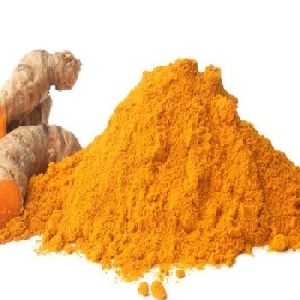
Get Price Quote
calcined pet coke, Anthracite Coal, Boron Oxide Powder, Casting Powder

Micro Silica
Get Price Quote
We are engaged in business of micro silica which is also known as silica fume and used in variety of cementious products and other applications.
Best Deals from Industrial Mineral

silica quartz powder
Get Price Quote
50 Ton (MOQ)

Organic Turmeric Powder
135 Per Kilogram
1 Kilogram (MOQ)

silica quartz powder
4,500 - 4,700 Per Metric Ton
25 MT (MOQ)

cenosphere
Get Price Quote

Cenospheres
Get Price Quote
100 MT Bag(s) (MOQ)
We are offering cenospheres. Cenospheres are inert hollow silicate spheres. Cenospheres primarily used to reduce the weight of plastics, rubbers, resins, cements etc. Used extensively as filler lubricants in oil drilling operations under high heat and high stress conditions down the hole. Also used as oil well cementing, mud putty and similar applications. cenospheres were first used in the united states as an extender for plastic compounds, as they are compatible with plastisols thermoplastics, latex, polyesters, epoxies, phenolic resins, and urethanes. The compatibility of cenospheres with speciality cements and adhesives coating and composites have been well identified. Cenosphere are widely used in a variety of products, including sports equipment, insulations, automobile bodies, marine craft bodies, paints and fire and heat protection devices. typically applied in gypsum board jointing compounds, veneering plasters, stuccos, sealants, coatings and cast resins. Providing the advantages of reduces weight, increased filler loadings, better flow characteristics, less shrinkage and warping and reduces water absorption.

Bentonite
Get Price Quote
Bentonite is an absorbent aluminium phyllosilicate clay consisting mostly of montmorillonite. The absorbent clay was given the name "bentonite" by Wilbur C. Knight in 1898, after the Cretaceous Benton Shale near Rock River, Wyoming. The different types of bentonite are each named after the respective dominant element, such as potassium (K), sodium (Na), calcium (Ca), and aluminium (Al). Experts debate a number of nomenclatorial problems with the classification of bentonite clays. Bentonite usually forms from weathering of volcanic ash, most often in the presence of water. However, the term bentonite, as well as a similar clay called tonstein, has been used to describe clay beds of uncertain origin. For industrial purposes, two main classes of bentonite exist: sodium and calcium bentonite. In stratigraphy and tephrochronology, completely devitrified (weathered volcanic glass) ash-fall beds are commonly referred to as K-bentonites when the dominant clay species is illite. Other common clay species that are sometimes dominant, are montmorillonite and kaolinite. Kaolinite-dominated clays are commonly referred to as tonsteins and are typically associated with coal.

Dunite
Get Price Quote
Dunite, Iron Ore, Quartzite Lumps, Iron Oxide, Fly Ash

ceramic glaze
Get Price Quote
ceramic glaze, refractory ceramic fiber, ceramic raschig ring

Bauxite
Get Price Quote
Bauxite, soap stone lumps, Quartzite Stone, Bauxite Lumps, Fly Ash Powder

Asbestos
Get Price Quote
Asbestos, Id Fan, non oven roll, rolling rolls steel, Liquid Filters

Silica Powder
Get Price Quote
Silica Powder, Quartz Grains

Silica Powder
Get Price Quote
Silica Powder

Bauxite
Get Price Quote
Bauxite, Iron Ore, Mangnese Ores, Iron Ore Fines, Magnesium Carbonate

Industrial Mineral
Get Price Quote
Industrial Mineral, Industrial Chemicals

cenosphere
Get Price Quote
cenosphere, Stainless Steel Square Tube, furniture slides

Bauxite Ore
Get Price Quote
Bauxite Ore, Dolomite Ore, Iron Ore, Metal Ore, Quartz Ore

Industrial Mineral
Get Price Quote
Industrial Mineral, Grinding Machinery, atomized aluminium powder

Ceramic Glaze
Get Price Quote

Hematite Iron Ore Powder
Get Price Quote
Hematite Iron Ore Powder, Ball Clay Powder